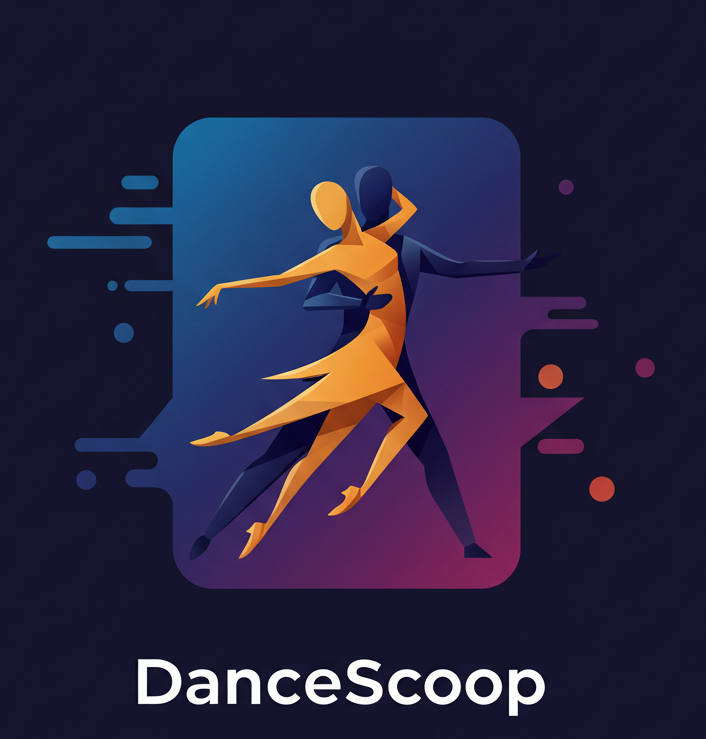
DanceScoop Tutorial: How to Ask for Events
Using DanceScoop is simple. Just type a short question (one or two sentences) that tells the system what you’re looking for. Here are a few examples that work well:
- “Where can I dance tonight? Social dances only, please.”
- “When can I dance salsa this weekend?”
- “How can I learn west coast swing this month?”
- “Where can I listen and dance to live music next week?”
Below, we’ll break down how each query is structured.
Part 1 – Start with a Question Word
Every query begins with a question word: Who, What, When, Where, Why, or How. In practice, “Where” usually makes the most sense, but you can omit the question word entirely if you like. For example:
- “dance tonight”
- “salsa this weekend”
These will work just as well.
Part 2 – Use a Verb to Specify the Event Type
Next, include a verb that tells DanceScoop what kind of event you want. We map these verbs to the event_type column in our database. Valid event types are:
[class, live music, other, rehearsal, social dance, workshop]
- If you ask to “dance,” the default is social dance.
- If you ask to “learn,” that covers class and workshop.
- If you ask about “live music,” it uses the live music event_type.
Example 1:
“Please show me all classes for salsa that are being held in the next 7 days.”
– This returns events where event_type = “class” or “workshop” and dance_style = “salsa” within the next week.
Example 2:
“Where are there workshops for salsa this weekend?”
– This returns events where event_type = “workshop” and dance_style = “salsa” during the upcoming weekend.
Part 3 – (Optional) Specify a Dance Style
If you want to narrow your search to a particular dance style, include it next. DanceScoop recognizes the following styles (case‐insensitive), including common variations and abbreviations:
[‘2-step’, ‘argentine tango’, ‘bachata’, ‘balboa’, ‘cha cha’, ‘cha cha cha’, ‘country waltz’, ‘double shuffle’, ‘douceur’, ‘east coast swing’, ‘foxtrot’, ‘kizomba’, ‘lindy’, ‘lindy hop’, ‘line dance’, ‘merengue’, ‘milonga’, ‘night club’, ‘nite club’, ‘nite club 2’, ‘nite club two’, ‘quickstep’, ‘rhumba’, ‘rumba’, ‘salsa’, ‘samba’, ‘semba’, ‘swing’, ‘tango’, ‘tarraxa’, ‘tarraxinha’, ‘tarraxo’, ‘two step’, ‘urban kiz’, ‘waltz’, ‘wcs’, ‘west coast swing’, ‘zouk’]
If you leave out the dance style, DanceScoop will return all styles for the event type you’ve chosen. Note that for live music, you generally shouldn’t specify a dance style—DanceScoop will search descriptions for partner-dance cues instead.
Part 4 – Specify “When”
Tell DanceScoop the time frame using ordinary English terms:
- Relative dates: today, tomorrow, tonight, this morning, this afternoon, this weekend, next week, next month, 14 days from now, etc.
- Specific dates: “June 15, 2025” or “2025-06-15.”
- Ranges: “between June 1 and June 7.”
If you don’t include any time frame, DanceScoop defaults to events starting today and returns up to 30 rows sorted by start_date and start_time. It may return fewer than 30 rows if your other restrictions narrow the results.
Part 5 – Defaults & Best Practices
If you simply say “dance tonight,” DanceScoop will assume event_type = social dance.
To find live music where people often partner dance, try:
“Where can I dance and listen to live music tomorrow night?”
DanceScoop’s database columns are:
[event_name, event_type, dance_style, description, day_of_week,
start_date, end_date, start_time, end_time, source, url, price, location]
We make a “best effort” to give you accurate results, but mistakes can happen. Always click the provided URL or check the source before you head out.
Summary
- Begin with a question word or phrase.
- Use a verb that maps to one of our event types (dance, learn, live music).
- (Optional) Add a dance style if you want to narrow your search.
- Specify a time frame in natural English.
- Hit Send, and DanceScoop returns up to 30 matching events sorted by date and time.
That’s it—quick, flexible, and to the point. Have fun dancing!